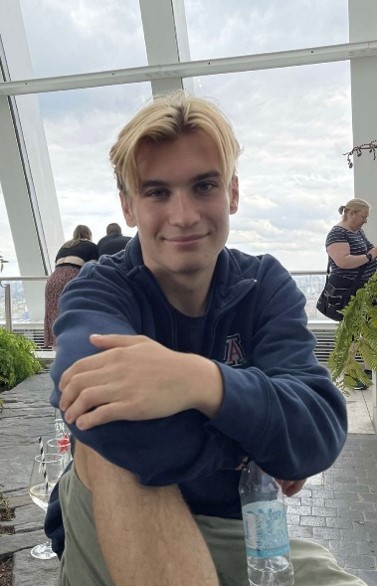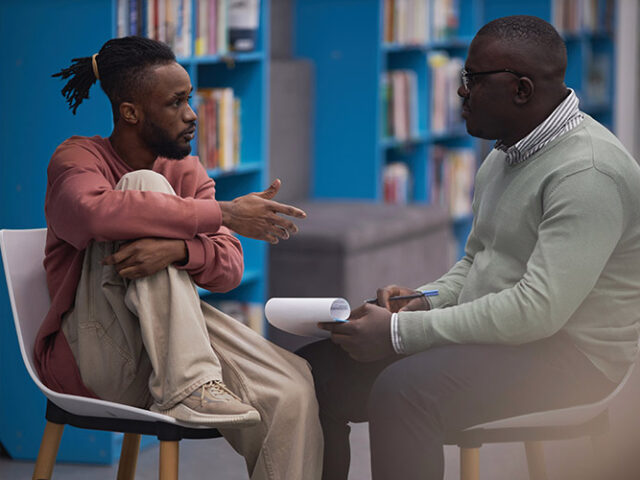Student Circuit caught up with Christian Grinling, second year electronic engineering student at King’s College London. Christian won Keyloop’s Dealer Tech 2022 with his mobile app, Coast, aiming to solve what he calls ‘the service problem’.
How have you found your experience at university so far?
I have loved my university experience so much. My course is very fun, with both math and engineering modules and I’m looking forward to next year’s modules I’ve chosen which are a bit more programming based. I also love King’s College; strand campus is really nice and living in London is quite fun.
Where did the idea for the mobile app come from? What problem were you trying to solve?
I initially gained the idea for Coast from the introductory seminar from Keyloop all the way back in October. They explained a number of problems that existed in the automotive sector and using those ideas, as well as some ideas on improving on last year’s winner, I came up with Coast. The problem I was trying to solve is what I call ‘the service problem’. Booking and servicing your car, as well as just remembering to do it in the first place, is so difficult to do with the current solutions right now. You have to find a place with one of the thousand dodgy looking websites – somewhere close, somewhere not too expensive, see if it actually does a good service, how long it’ll take, find a time to do it, a lot of the time you don’t know how much it’ll cost until after… it’s a mess, and we all hate it. Coast brings all of these disjointed solutions into one easy to use mobile app that makes all of these a breeze and with Coast, booking and managing your service takes no more than 60 seconds.
Could you explain what technology the app uses and how it works?
Coast is an iOS app that allows users to book, track and manage their car service in real time. Coast finds garages near you, saves your favourite locations, and garages and lets you filter your searches to exactly your price and your rating. It also reminds you when your next MOT/Service is due and sends out safety notifications to check your car and when the weather is bad. It also allows garages to manage their bookings, accurately price and organise their services and keep in 1-1 contact with the customer throughout.
Coast is built primarily using XCode and Swift, a programming language used for iOS apps. It also uses Firebase as a backend, an easy-to-use Google supported database that I use for most things as it has a free tier. I also used Figma as a tool for designing the user interface before I started programming it.
What are the specific environmental benefits?
Coast lets you stay on top of your services and makes sure that any cars that are malfunctioning or in need of a service can get one as soon and as quickly as possible. This allows cars to be driven longer on the road and develop a longer lifetime instead of being thrown away and contributing to waste. It can also revolutionise the way and time taken for cars to get serviced. With the electrification of cars becoming more and more imminent, Coast innovates the servicing sector to keep up with the environmentally friendly electric car sector. That way, we can usher in a new age of environmentally friendly vehicles that are not only easy to drive, but easy to service too.
What help and support did you receive when creating/developing this app?
Keyloop were a massive support in creating Coast. From the initial idea to the masterclasses that they held for help with marketing, branding, pricing and more. I also started a module in entrepreneurship at KCL that I took some ideas from to help.
Do you have a specific passion for making a difference in the environment? If so, where did this come from?
I definitely think it’s important to make a difference in the environment. Technology has the power to make so many great things but can also have a large impact on the wellbeing of our environment. When building products, I always make sure to take sustainability into consideration and make sure the negative impacts are well managed and minimised.
Were there any challenges during the process?
There were a few challenges in building Coast. A lot of the UI design took a while to develop, and some of it proved quite hard to implement into code. The sheer amount of features I wanted Coast to have, to a professional and production level standard took a lot of time to code in, especially making them safe, and to not crash the app, as well as making it universal for all users was very time consuming.
It took me a couple of months to produce Coast, having to juggle with Christmas and January exams in-between, and after the first presentation, I worked nonstop for the next week to produce CoastDealer, the dealership side of Coast’s platform in response for the judge’s feedback to see it. It was fairly difficult, a lot of the time creating and handling complex booking, searching, and tracking systems that could scale up to millions of users and support thousands of garages if needed. However, I quite enjoy the challenges projects like these give me and the satisfaction in overcoming them in a clean, production level and aesthetically pleasing way.
Where did your passion for software engineering come from?
My passion for software engineering first came from playing Minecraft at a young age. I had always wanted to make servers for me and my friends to play together on, and it sort of just all developed from there; making plugins for Minecraft servers, building my computer, my own 3D printer, getting into game design, machine learning and computer vision before turning towards mobile apps mostly.
I also founded a startup company UNISZN in the summer of 2020, an app designed to help incoming students connect with other students on their course, so that they already knew and made friends before coming to uni. UNISZN was a great success, with close to 1000 students in over 30 universities in its first week, and although it’s now shut down, it was really instrumental in developing my iOS programming skills and managing large scale production applications.
What happens next? Is the app ever going to be available?
I designed Coast to be scalable and universal from the beginning just in case anyone wanted to take it any further into production. I probably won’t develop it any further as I don’t have the resources or the money to properly compete with other big players in the servicing industry unfortunately, but if anyone would be interested in buying it from me and developing it further, I’d be happy to speak about it. Next, I’m going to develop and refine my programming skills and knowledge, and hopefully start something else up that I can fully support. I’ve got a few projects in the works…
What do you hope to achieve in the next five years?
In the next five years I hope to start my own company, something software based, maybe an iOS app or a website, or even a robot, to really put my electronic engineering skills to the test.
Any advice to fellow students who might want to be in your situation?
Look for any opportunities to develop your passions, competitions, hackathons, online courses, to help develop and improve your skills. I applied for Keyloop’s competition on a whim, not really knowing what was going to happen but to see if I could make something useful and practice everything that I had developed over the last 2 years. It’s always worth applying to these things and see what happens. Worst case you practice and learn from your mistakes, best case you could win £10,000! It’s really pretty cool.





